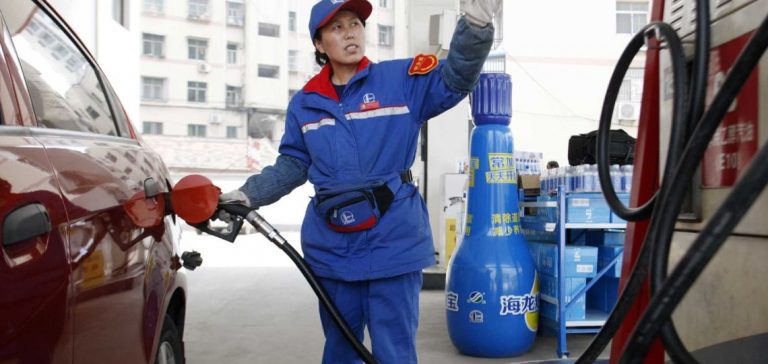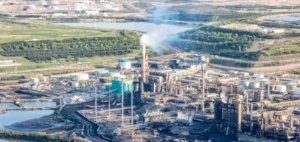The Asian high sulfur gasoil market observed a price increase and a narrowing spread compared to low-sulfur gasoils. This trend is primarily attributed to expectations of continued spot demand, particularly from Pertamina, the Indonesian national oil company. This increased demand follows a decrease in domestic production due to technical issues at the Balikpapan refinery, according to sources close to the matter.
The Platts FOB Singapore 10-500 ppm sulfur gasoil spread narrowed by 2 cents/b on the day and by 16 cents/b on the week, reaching a more than two-month low of 49 cents/b at the Asian close on October 8. According to S&P Global Commodity Insights data, the tightest spread was previously recorded at 37 cents/b on July 31.
Impact of Technical Issues at Balikpapan
The 360,000 b/d Balikpapan refinery was initially expected to reduce its gasoil production until the end of October due to unexpected technical issues affecting the HDU (Hydrodesulfurization Unit) or HCU (Hydrocracking Unit), according to sources close to the matter. However, some sources remain skeptical about the refinery’s ability to resume normal operations by the end of the month.
In response, Indonesia has issued two tenders amounting to at least 2.7 million barrels of high sulfur gasoil for October delivery. Market players are currently assessing whether this demand will continue into November, pending the resolution of issues at the Balikpapan refinery.
Increased Demand from Pertamina
Pertamina was heard seeking up to 400,000 barrels of 2,500 ppm high-speed diesel loading from Singapore or Malaysia over October 14-25. Additionally, up to 1.2 million barrels are expected for delivery to Tuban, Tanjung Uban, and Pulau Laut between October 21 and October 31, via a tender closing on October 9 with two-day validity, sources indicated.
Earlier, Pertamina sought up to 1.5 million barrels of high-speed diesel with a maximum 2,500 ppm sulfur content, loading over September 28-October 6, for delivery on various dates from October 3 to October 31 to Tuban, Balikpapan, and Pulau Laut, according to Commodity Insights.
A Singapore-based gasoil trader stated: “There could potentially be 1.5 to 2 million barrels of demand from Indonesia due to the Balikpapan refinery issues.”
Domestic Production Impact
Indonesia’s domestic gasoil demand is also expected to rise amid seasonal demand as the year-end holiday period in December approaches, sources said. However, the fall in Indonesia’s gasoil production could be mitigated as overall gasoil production could be buoyed in the short term due to the delayed planned turnaround of the Cilacap refinery, with a capacity of 348,000 b/d.
Pertamina postponed the Cilacap maintenance initially scheduled from October 15 to November 15 to boost national production, following an earlier unplanned turnaround at the Balikpapan refinery, according to a source close to the matter.
Market Spread Evolution and Sentiment
Some recent trades occurred in the ultra-low sulfur gasoil segment in Asia this week, capping market gains despite shorter supply in October compared to September due to higher domestic consumption during the harvest season. However, Chinese economic stimulus, Indonesian spot activity for high sulfur gasoil, and expectations of resumed activity this week post-holidays in North Asia have strengthened trading sentiment for ultra-low sulfur gasoil.
The Platts-assessed cash differential for ultra-low sulfur gasoil cargoes loading from Singapore was last assessed at a premium of 29 cents/b at the Asian close on October 8, up 5 cents/b day on day and 1 cent/b on the week, according to Commodity Insights data.
In comparison, gains were more significant for the high sulfur segment, as the Platts-assessed cash differential for FOB Singapore 500 ppm gasoil cargoes was last assessed at a discount of 20 cents/b at the Asian close on October 8, up 7 cents/b on the day and 17 cents/b on the week, according to Commodity Insights.
Market Outlook
Reflecting increased interest in the product, the Platts-assessed FOB Singapore 10 ppm sulfur gasoil derivative crack spread to front-month Dubai swap – a measure of the product’s relative strength to the crude it was refined from – widened by $1.24/b to an average of $14.26/b in the week to October 8, higher than the average of $13.02/b in the previous week.






















